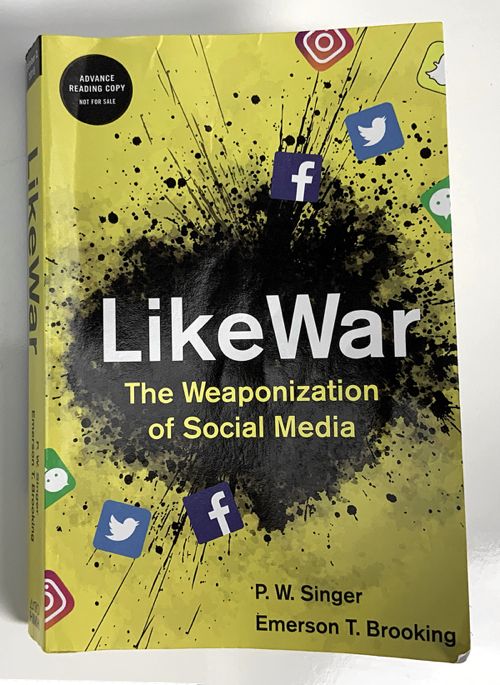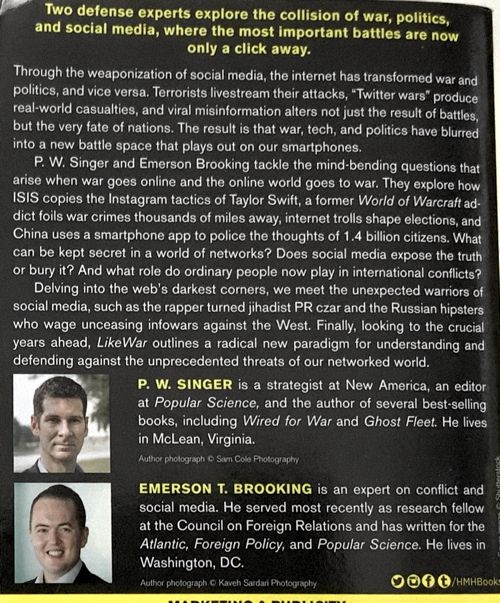If you are wondering how collusion affected the 2016 US presidential election, why the internet is the most effective communication medium in the world, and why social media companies effectively are countries in terms of power and influence on the world stage, then you should immediately grab a copy of LikeWar: The Weaponization of Social Media.
Highly readable and example rich, Singer and Brooking make a strong case for why we must consider social media platforms as weapons of political and conventional war. Beginning with a brief history of the internet as a communication medium that allows anyone in the world to communicate with anyone else, the book illustrates the potential for that global communication medium to be a force for good, such as with the story about how a World of Warcraft player 2,000 miles away and through an incredible example of citizen investigative journalism was able to piece together what happened to the Boeing 777 flight from the Netherlands to Malaysia that was shot down over the Ukraine in July, 2014. And the internet can be a foundation for helping one’s career, such as how folks like Taylor Swift can rise to fame and riches by growing and harnessing legions of adoring fans. But that global communication medium is also a threat to privacy, democracy, and even our understanding of reality and what is true. The is due to the fact that most folks use their political bias as the filter in determining what is real from what is fake. This latter, more troubling, aspect of the internet and social media is where the book focuses its energies, with detailed case studies including how the Islamic state and Russia have mastered the medium for their manipulative ends.
Building on classic principles of information warfare, the web and social media platforms make it easy for enemies to spread disinformation, such as how young Russian “sockpuppets” can pose as Americans and sow political division, in part because most people online lack the awareness of the risks in consuming media without a critical eye. In addition to copious examples and analysis over eight chapters, the authors provide detailed citations that form an extensive Notes section, allowing the reader to confirm any example or explore as many rabbit holes as desired. Overall, the book is an excellent, if sobering, primer for all of us to better understand not only the forces in today’s world shaping the narratives which impact daily world events, but also how those forces have turned social media and the internet into weapons for conducting ideological, political, and physical warfare. LikeWar: The Weaponization of Social Media is an important guide for helping us all be more digitally literate users of the internet–our survival may indeed depend on more of us gaining this literacy.
- Pricing and Availability on Amazon: LikeWar: The Weaponization of Social Media
NOTE: I am an independent product reviewer–if I don’t like the product I say so, and if I do like the product I say so. If you end up purchasing something from a link on my site, I may receive, at no additional cost to you, a small commission. Thank you for your support!

